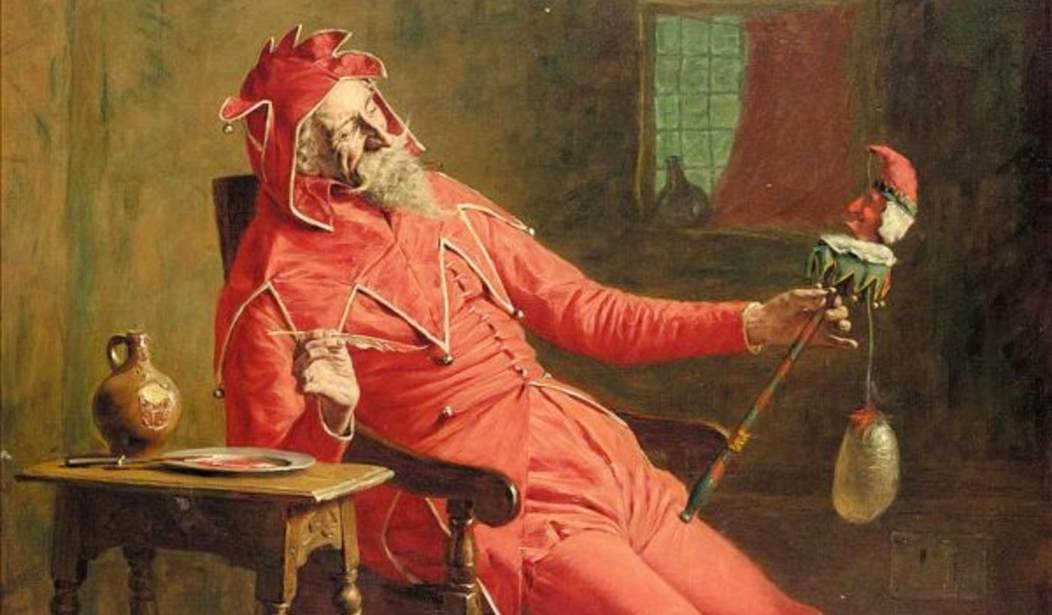April Fool’s Day is the day for juvenile pranks. The old “kick me” sign, the loosened salt shaker top, and the plastic wrap on the toilet seat are funny when we can play the tricks but not so much when we’re the butt of the jokes. But let’s face it; most April Fool’s Day pranks are pretty lame.
Sometimes, the more elaborate pranks can be genius. My favorite April Fool’s Day prank that I was involved with happened back in the mid-90s. I had an inventory job at a cellular company, and we knew that one of our salespeople was calling travel agencies as a joke trying to book vacations to Cuba.
We talked the regional manager, who loved to joke around but could also be deadly serious, into calling her and telling her that she was on a watchlist for asking about trips to Cuba. We had to stifle our laughter as we sat in his office listening to him lecture her on speakerphone as she squirmed before he lowered the “APRIL FOOL” boom on her.
The history of April Fool’s Day is murky, but many historians believe that it has its origins in the Roman mirth-making festival of Hilaria. Another theory is that it links to the switch from the Gregorian calendar to the Julian calendar, which moved the new year to January 1 from April 1. The day took off in Great Britain in the 18th century, with the Scots even turning April Fool’s Day into a two-day festival of annoyance.
Of course, in more recent times, we’ve seen April Fool’s Day morph into media hoaxes on purpose, fake marketing campaigns, and silly social media posts. Some of the ones I’ve seen this year were kind of clever:
Others were downright cruel:
But sometimes our betters in the mainstream media become the butt of the joke. In 1983, Boston University connected an Associated Press reporter with Joseph Boskin, a professor emeritus of history in the College of Arts & Sciences. The reporter wouldn’t take Boskin’s “I don’t know” for an answer. BU Today picks up the tale:
The AP reporter asked Boskin about the origins and history of April Fools’ Day. “I said, ‘I don’t know anything about the holiday, and I really can’t be of help to you,’” Boskin recalls. “The reporter said, ‘Don’t be so modest.’ When the reporter kept pushing, Boskin says, “I created a story.”
One of Boskin’s closest friends had always loved the Jewish noodle pudding kugel. That popped into his head, and he decided to tell a story about a jester who became king — King Kugel. One of Boskin’s fields was medieval history, so he concocted a convincing tale.
“Since I was calling New York, where kugel is famous, and it was April Fools’ Day, I figured he would catch on,” Boskin laughs. “Instead, he asked how to spell kugel.” As he was telling the outlandish story, he kept expecting the reporter to wise up to what he was doing, but all he heard was the clatter of a typewriter on the other end of the phone.
The AP ran the story, and Boskin suddenly found himself fielding calls from outlets like “The Today Show” to hear more about King Kugel and the, umm, origin story of April Fool’s Day. In the meantime, Boskin used the story in one of his classes as an example of how media outlets can fall for fake stories and run them as news. (How ahead of his time was that?)
Recommended: Biden Turns the Transgender High Holy Day Into a 'Look at Me' Moment
The editor of a local paper was in Boskin’s class the day he talked about the fake April Fool’s story, and he wrote it up with the headline, “Professor Fools AP.” That’s when the you-know-what hit the fan.
“The AP had a huge conniption when they read this,” Boskin told BU Today. “I got an immediate phone call from an editor there, who was furious, saying that I had ruined the career of a young reporter. He said I told a lie. ‘A lie?’ I asked, ‘I was telling an April Fools’ Day story.’”
“The AP always, always checks on stories, and for some reason, this one fell through the cracks,” he continued. “It was their fault for not checking the story, and I embarrassed them. But I mean, really — kugel? What reporter from New York doesn’t know what that is?”
The reporter who fell for the fake news wound up joining the Boston University faculty as a communications professor, so his gullibility in that one instance didn’t scuttle his career. But it’s a valuable lesson for all of us: know the news sources you can trust.
And if you’ve read this far, you know that PJ Media is one of those news outlets you can count on to report the truth and hold both sides accountable. We’re not beholden to billionaire donors, so we have to fight the uphill battle of competing for advertising dollars.
That’s why our PJ Media VIPs are so crucial in helping us survive and thrive. VIPs get access to exclusive content, the comments section, podcasts, and an ad-free experience. If you’ve considered becoming a VIP, there’s never been a better time. You can sign up today with the code SAVEAMERICA for an impressive 50% discount.
The discount allows you to become a VIP for about $2 a month, or you can go for the gold with VIP Gold — which gives you all the VIP goodies across the whole Townhall family of sites — for about $4 a month.
It’s a great opportunity to get amazing benefits and help us in our mission to report the truth — without fooling you.










Join the conversation as a VIP Member